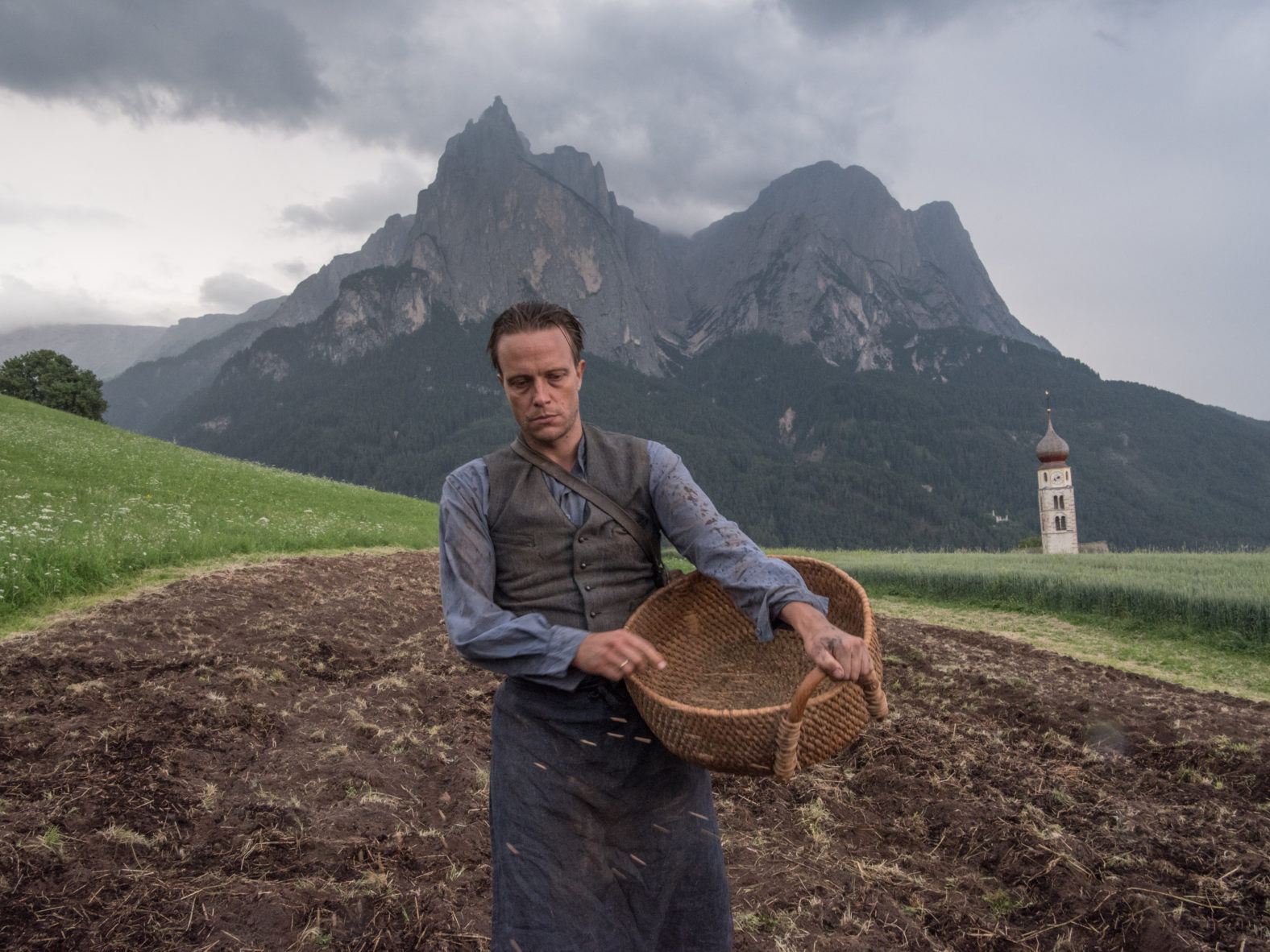I wasn’t sure what to expect with Terrance Malick’s latest film A Hidden Life. War films aren’t usually the film genre that I would go out of my way to see, and after being advised that the film was about 3 hours long (specifically at 2 hours and 54 minutes), admittedly, there were many variables that could have put me off. My curiosity won this internal struggle when I discovered that A Hidden Life is based on truth. Surprisingly, I thoroughly enjoyed this film, and a lot more than I thought I would.
Written and directed by Malick, the slow but consistent narrative follows the life of Austrian farmer Franz Jägerstätter. Franz’s life is shown as serene and picturesque as he and his family reside in a secluded town hidden amongst the mountains and fields, far, far away from the war. The little town appears to be somewhat of a sanctuary, but the safety of a farmer’s life, no matter how far from the war, is a lie. War’s pull is undeniably strong, even reaching the most secluded areas to enlist men.
Franz Jägerstätter, incredibly portrayed by August Diehl, is a man of principle and morals. As a man of peace and living a simple life, he doesn’t understand the complications, nor can he justify the reasons for the war and loathes the idea of his beloved country blindly following the Germans and Hitler’s regime. In fact, he wants to play no part in it. Having trained previously in case he ever needed to be enlisted, Franz and his family play the anxiety-inducing waiting game in the fear that if he is enlisted to fight for Hitler, he would refuse as it goes against everything he believes in.
The scenes that particularly spoke to me in A Hidden Life were the various moments that showed Franz and his wife Fani (Valerie Pachner) subtly reacting with anxiety and fear whenever they would hear the postman’s bell as he cycled through the town delivering letters, the couple fearing for Franz’s enlistment and essentially, his life.
The film ultimately makes the viewer think on what decisions they would have made, had they been in Franz’s position. When Franz is shown to be given an ultimatum to choose between participating in the war in a non-combat position to help the wounded and assist in a medical capacity, you can not only see it testing on his mind with the excellent acting by Diehl with his mere facial expressions, but how his decisions are affecting everyone around him.
With everyone discouraging Franz from making his decisions, the only one who stands by him is his wife. Fani is shown to live a life of torture in her own way, much to the bullying of the townsfolk for not agreeing and going along with Hitler, paying for the decisions her husband has made for himself. But instead of reacting unkind, she still remains true to herself, and despite desperately longing for her husband to stay alive and in their children’s lives, in the end, she supports his decisions and never tries to reason with him to compromise his beliefs.
With this plot being emotionally heartbreaking, it hurts more when you realise that this really happened, as the story is true.
What would you have done if had you been in Franz’s position?
Would you have accepted and given in to work under Hitler’s regime?
Or would you have boldly stood by your beliefs knowing full well that the noise you make in protest would steal you away from everyone you love and take your life?
If I wasn’t initially told that A Hidden Life was almost 3 hours long, I’m not sure I would have noticed. I relished in the quiet moments where the film took in the beauty of the naturescapes and provided a visual comparison to the city with its obvious acceptance of war. Sure, this film isn’t for everyone, but the strong message that Malick intends to share in this anti-war feature is both distinct and inspiring.
Throughout the visually stunning A Hidden Life, Franz Jägerstätter is told that he is ‘only one person’ and that what is he doing, his protest, will make very little effect on the world. The irony of it all is that 77 years after his death, his story is still being told and is just as important now as it was back then. It is known that people change when under duress. But for those who stand up for what they believe in and fight for what is right, no matter the cost, no matter the sacrifice, they are the true heroes of this world – no matter how small.
